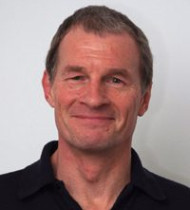5th Biennial Conference on Religion and Politics
Supreme guarantee against
all abuses of power?
Question of God and existence
of politics
In memory of John Paul II
6 - 7 November 2025
Idea and aim
The year 2025 marks the 20th anniversary of the death of John Paul II. We will simultaneously celebrate the 30th anniversary of the publication of his encyclical Evangelium Vitae, defending human life, and approach the 35th anniversary of the publication of his encyclical Centesimus Annus, analyzing the collapse of the Communist Bloc, the essence and challenges of a modern democratic state and a free economy. John Paul II's thinking on social and political issues started from theology. He recognized that while there are secular activities, in the sense of not being under the jurisdiction of the Church, there are no completely secular areas in the sense of absolute independence from theological presuppositions (Rowland 2003, 79).
Over last two decades, our civilization is moving in the opposite direction. Social, economic and political projects as well as key categories of the Western legal order (e.g., human rights), pretend to be so secular and independent of any theological presumptions that they acquire even sacral qualities. This paradox of sacralization a rebours was described theoretically years ago by Leszek Kolakowski (2014).
- 6 - 7 November 2025
- 9.00 - 19.45
- Warsaw, Poland
- The Institute of Political Science and Public Administration of the Cardinal Stefan Wyszyński University in Warsaw (Poland)

Political choices perceived as “infallible decisions of the gods,” the accompanying stigmatization of the opposition, e.g. by assigning their statements to the category of hate speech, and preventive censorship in the media, including social media, make any rational political debate impossible. Maybe in this context it is particularly legitimate to refer to the legacy of John Paul II's thought.
On the one hand, there is a question of what went wrong. Why - contrary to the Pope's expectations - have the "tears of [the twentieth] century" not "prepared the ground for a new springtime of the human spirit" (John Paul II 1995)? Why, in such a short time after the collapse of the totalitarian “culture of death,” did we choose a “new culture of death,” justifying this choice by appealing to democratic principles? Why are the leaders in promoting anti-culture Europe and its political institutions, as well as political parties formally referring to the idea of Christian democracy? Why did Poland, the Pope's homeland, become the terrain of this cruel experiment?
Such questions could be multiplied. It seems that at the root of these problems we have a return to the political monism that took place during the period of absolutism and the Enlightenment. The modern state ascribed to itself absolute competence, i.e. it also became a “secular” church, responsible to produce state morality. This model was not only consciously implemented in the French and Bolshevik revolutions but is also - albeit in a different way - an integral part of political liberalism (Alasdair MacIntyre, John Gray).
Criticism of the new “Western” authoritarianism is present in the texts of John Paul II in the last years of his life (vide: the dispute over so-called reproductive rights in Beijing and Cairo, the dispute over the preamble of the EU Constitutional Treaty). Of course, no less important is the question of what makes the opposition to these tendencies still somewhat successful in some Western countries (vide the decisions of constitutional courts in the US and Poland regarding guarantees of the right to life)?
On the other hand, it is a question about the accuracy of the papal analysis. For maybe some of the assumptions were wrong. Maybe "authentic democracy" is a utopian dream? Maybe the Pope was simply wrong, for example, in supporting the process of European integration. Maybe the hope for a "free economy" version of capitalism (CA) ultimately boils down to supporting an "economy that kills" (EG). Maybe hope is then to be placed in a "new paradigm of Catholicism," breaking with John Paul II’s interpretation of moral theology and social teaching.
Or perhaps John Paul II's social theory works and works all too well? Ultimately, the course of evolution of democratic politics developed "as if there were no God" is proceeding, almost without deviation, along the trajectory outlined by St. John Paul II: the foundations of benevolent politics are being systematically and consistently undermined in most European countries and the EU itself. It can be said that just as real socialism was "in a way a concrete and institutional realization of Leo XIII's predictions" [CA 12], the state of contemporary politics is becoming an increasingly tangible realization of John Paul II's warnings against politics based on relativism. Europe, in its EU form, with increasing secularization, is making a political and anthropological choice in which the understanding of "the dignity of the person as fully revealed by the mystery of the Incarnate Word" becomes not only incomprehensible but also contradictory to European values [!]. Perhaps what has been insufficiently fulfilled are the hopes that the Holy Pontiff placed in the faithful, in the shepherds of the Church and people of goodwill calling them to go through and, after overthrowing communism, overthrow the flawed paradigm of Western politics as well?
We invite you to reflect together on these and other subjects, ultimately related to the issue of the relevance of the "question of God" to the possibility of a politics and economy benevolent to man. Sister Prof. Helen Alford OP and Prof. George Weigel, keynote speakers at the upcoming conference, have agreed to provide special assistance in this search.
Keynotes

is a Catholic theologian and one of America’s leading public intellectuals.
He is Distinguished Senior Fellow of the Ethics and Public Policy Center.
Mr. Weigel is perhaps best known for his widely translated and internationally acclaimed two-volume biography of Pope St. John Paul II: the New York Times bestseller, Witness to Hope (1999), and its sequel, The End and the Beginning (2010). In 2017, Weigel published a memoir of the experiences that led to his work as a papal biographer: Lessons in Hope — My Unexpected Life with St. John Paul II.
George Weigel is the author or editor of more than thirty other books, many of which have been translated into other languages.
Mr. Weigel received a B.A. (Philosophy) from St. Mary’s Seminary and University in Baltimore, an M.A. (Theology) from the University of St. Michael’s College, Toronto, and is the recipient of nineteen honorary doctorates. In 2024 he was decorated with the Commander’s Cross of the Order of Merit of the Republic of Poland, and has also been awarded the Papal Cross Pro Ecclesia et Pontifice, the Lithuanian Diplomacy Star, and the Gloria Artis Gold Medal of Poland’s Ministry of Culture.

Helen Alford OP
is an economist and dean of social sciences at the Pontifical University
of Saint Thomas Aquinas in Rome, Italy. April 1, 2023, was appointed president of the Pontifical Academy of Social Sciences.
Member of the Congregation of St Catherine of Siena of Newcastle, Natal (Dominicans) since 1994; Senior Adviser to the “Blueprint for Better Business”; Consultor to the Dicastery for the Promotion of Integral Human Development; Expert of the Holy See’s Agency for the Evaluation and Promotion of Quality in Ecclesiastical Universities and Faculties (AVEPRO).
Her research mostly looks at the role and impact of ethics and Christian social thought in the field of management.
Her numerous publications address questions of social ethics, health equity, and the responsible distribution of wealth (e.g. H. Alford, A. L. Presti, Il carcere degli esclusi: le condizioni civili degli stranieri nelle carceri italiane, Cinisello Balsamo, Edizioni Paoline, 2005, H. Alford, Rediscovering abundance: interdisciplinary essays on wealth, income,
and their distribution in the catholic social tradition, Notre Dame, Indiana, University of Notre Dame Press, 2006).

Piotr Mazurkiewicz – Catholic priest, professor of political science and Catholic social teaching at Cardinal Stefan Wyszyński University in Warsaw (Poland). Specialist in European studies, political philosophy, Catholic social teaching, social and political ethics. From 2008 to 2012, he was Secretary General of the Commission of the Bishops’ Conferences of the European Community (COMECE) in Brussels. Since 2002, he has been a member of the Scientific Council of the Institute of Political Studies of the Polish Academy of Sciences. He is the author of numerous books and articles. His latest publication is ‘The Golden Calf and False Prophets. The State as a Tool for Fighting God,’ Wydawnictwo Biały Kruk, Warsaw 2025, pp. 248.
Call for papers
In accordance with our tradition, we invite you to submit proposals for papers for the conference. They may be devoted to issues described within the conference idea (bookmark “Idea and aim“), to the subjects of proposed panels (see the description of the proposed panels), but we also invite you to present at the conference your current research in the field of political science of religion. Alongside the main sessions, there will be parallel panels on current research on religion and politics.
Applications should include the title of the presentation along with the abstract (max. 300 words).
The conference will be held in Polish and English. Plenary sessions will be held in English, parallel panels will be held in one of the two languages mentioned.
Proposals for presentations should be sent via the application form on the conference website www.religionandpolitics.pl.
There are two options for the submission deadline. If you send your application by September 8, 2025, you will receive a decision on acceptance your application by September 15, 2025. If you send your application by October 8, 2025, you will receive a decision on acceptance by October 15, 2025.
Programme conference
View the full conference programme HERE.
Programme Committee
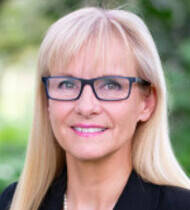
Professor of Law at Ave Maria School of Law in Naples, Florida and Adjunct Professor at the School of Law at Notre Dame University in Sydney, Australia
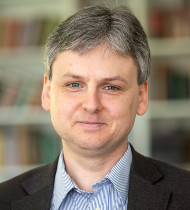
associate professor of political science at the Cardinal Stefan Wyszynski University in Warsaw, chair of the Programme Committee of the conference
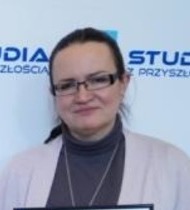
associate professor of political science at the Institute of Political Sciences of the University of Opole.

professor of humanities at the Cardinal Stefan Wyszynski University in Warsaw, theologian, and specialist in political science

professor of humanities at the University of Zielona Góra, historian, and political science specialist

associate professor of political science at Pázmány Péter Catholic University and senior researcher of religion and society at the University of Public Service, Budapest

Senior Lecturer in International Relations and Director of the Freedom of Religion or Belief &Foreign Policy Initiative at the University of Sussex

doctor of humanities and political science specialist; Adjunct Professor of the Institute of International Relations of the University of Warsaw

professor of humanities at the Cardinal Stefan Wyszynski University in Warsaw, sociologist, and political science specialist
Conference organizers

The Institute of Political Science and Public Administration of the Cardinal Stefan Wyszyński University in Warsaw

Ave Maria School of Law, Naples, Florida, USA

Collegium Interethnicum (Poland)
Conference co-organizers

The Faculty of Political Science and International Relations of the University of Warsaw

The Institute of Political Science of the University of Opole
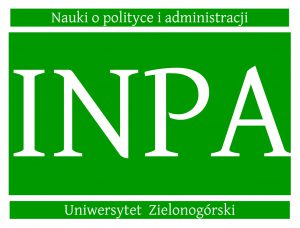
The Institute of Political Science and Public Administration of the University of Zielona Góra

International Catholic Jurist Forum

The Catholic Association "Civitas Christiana" (Poland)

International Solidarity and Human Rights Institute
Conference partners
Archival
The following conferences were held in the series devoted to the relations between religion and politics:
Relations between religion and politics as a subject of research of political science
- 30 November – 1 December 2017
- Idea and aim
- Conference programme
Secularism as a challenge for politics and political science
- 12-13 December 2019
- Idea and aim
- Conference programme
Religion and Politics in the Context of "Epochal Change"
A New, Even More Brave World ... The Hope of Faith and the Hope of Politics
- 30 November - 01 December 2023
- Idea and aim
- Conference programme
- Conference recording 30.11.2023 (in Polish)
- Conference recording 01.12.2023 (in Polish)
Supreme Guarantee Against All Abuses of Power?
- 6-7 November 2025
- Idea and aim
- Conference programme
- Conference recording 6.11.2025
- Conference recording 7.11.2025
Conference details
The conference will be organized in Warsaw, Poland. We also offer the possibility of online-only participation (but we prefer in person participation). The fee for participating online is the same as for participating in person. The conference will be held in English and Polish.
Conference fees:
The conference fee is:
- 125 Euros for those who submit their applications by September 8
- 150 Euros for those who submit their applications by October 8.
The fee covers the cost of meals (lunch 6 November, dinner 6 November, lunch 7 November) and coffee breaks. The costs of travel and accommodation are not included.
Bank account for payment:
Collegium Interethnicum, 32/4 Fasolowa Street, 02-482 Warsaw, Poland
IBAN: PL 13 1050 1012 1000 0090 3055 2542 (ING Bank Śląski)
SWIFT (BIC code): INGBPLPW
The transfer title: Surname. Religon and Politics
Accomodation:
Participants make their own arrangements.
Organizing committee:
- Michał Gierycz – chair (m.gierycz@gmail.com)
- Michał Kmieć – secretary (m.kmiec@uksw.edu.pl)
- Patrycja Laszuk – secretary (p.laszuk@uksw.edu.pl)
- Mariusz Sulkowski (m.sulkowski@uksw.edu.pl)
- Piotr Burgoński (burgonski@onet.eu)
Conference venue:
The Institute of Political Science and Public Administration of the Cardinal Stefan Wyszyński University in Warsaw (Poland)
1/3 Wóycickiego Street, Warsaw, building no. 23, room 201, second floor (www.politologia.uksw.edu.pl)
Maps:

